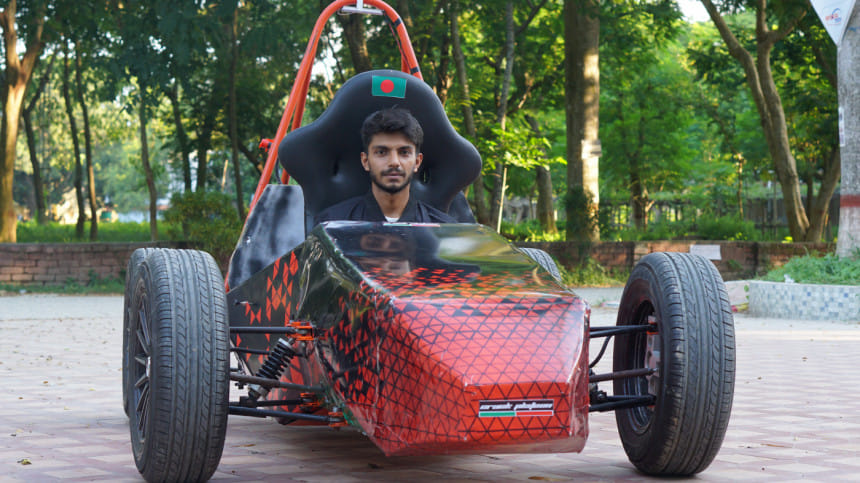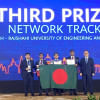RUET team ranks 8th in Formula Student Switzerland

Team Crack Platoon from Rajshahi University of Engineering & Technology (RUET) has ranked 8th overall at Formula Student Switzerland earlier this month, participating against 22 teams from 12 countries. They also clinched the 4th position in the 'business plan presentation' category at the competition.
Formed by students from the Mechanical 12 series at RUET in 2015, Crack Platoon is the country's first SAE (Society of Automotive Engineers) team dedicated towards fabricating automotive vehicles to compete in student formula competitions. The competition, called Formula Switzerland, is an international engineering design contest first organised by the Society of Automotive Engineers in 1979. This competition serves as an essential platform for aspiring mechanical engineers to showcase their talent, test their mettle, and explore cutting-edge technologies from alternative energy sources to smart vehicle systems.
Team Crack Platoon has recently created CP E 23, an electric vehicle using local and eco-friendly materials, with which they competed in the event. The car adheres to the Formula Student rulebook, and is made from locally sourced materials. According to Sk. Toki Tahmid, the team captain, this was done to combat the scarcity of automobile-related resources in the local market.
The team used reed, a local product, for the structure of the driver's seat, unlike foreign teams that typically opt for carbon fibre. Under the hood, the car boasts a formidable 2 kW motor fueled by a 72-volt lithium ferro phosphate battery and has recorded a top speed of 120 km/hr. To safeguard the driver, they constructed a self-made composite firewall, while electrical circuits, including an insulation monitoring device, protect against electrical hazards.
Throughout their journey, the team has come across a number of hurdles, the most prominent being the unavailability of resources in Bangladesh. "Unlike countries with well-established automotive industries, the lack of local suppliers forces our teams to import components from abroad. This is a time-consuming and expensive process, impacting the overall project timeline and budget," Tahmid explained. Moreover, building a race car requires substantial investment, which can be overwhelming for students who rely on their limited pocket money.

 For all latest news, follow The Daily Star's Google News channel.
For all latest news, follow The Daily Star's Google News channel. 








Comments